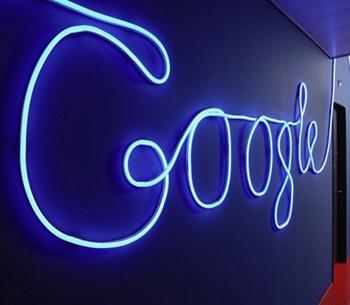The last note of Google listing updates to its engine for the month of April is as busy as the previous one: more than 50 changes are listed. As in previous months, few details are given and the anecdotal alongside what appears to be the most important developments.
Penguin Update, anchor links and keywords gavage
Among the most salient aspects discussed this month: the “ Penguin Update ”. The update that changed the results in the fight against the Black Hat SEO, deployed April 25, is a “major improvements of the algorithm”, the last month, in the words of spokesman for Google, Matt Cutts, who signs the ticket listing the changes in April.
If this “Penguin Update” has penalized some practices net linking, Matt Cutts announced that the engine also, in April, fixed a “bug with anchors of links “, changing the way Google now takes into account these anchors. The feeding of keywords (key word stuffing) will also be better detected, as he promises.
Anchors and force-feeds keywords are now clearly in the viewfinder of Google. The engine had already announced that it had reviewed the inclusion of anchors in March. And in the post announcing the Penguin Update, the gavage of keywords was also clearly stated…

This is not the only update on the detection of keywords in the pages since Google announced in effect today “to improve the inclusion of keywords in a page.” ”One of the fundamental signals used by a motor about how key words typed appears on any page. An update made in April improving how those keywords are evaluated,” writes Matt Cutts, who does not give more details.
SEO and local navigational query
Several updates deployed last month concerning the association of the pages to a place. Some pages may indeed be related to a country now. If earlier, Google could detect if a site or a subdomain was more relevant for some countries than others, the granularity is finer now because now extends to the page for sites that have content user generated. ”This means that some pages of a site may be considered relevant for France, and others to Spain.
The engine also indicates that navigational queries say (when the user types the name of the site he is looking) now better reflect the language of the user back to the site of his country or its language. The navigational queries localized (“the silver tower restaurant paris” for example) should also, depending on the engine, do now appear more localized the homepage of the site sought by this request.
In the same vein, local variations of corporate sites may also be promoted: “mexico.cnn.com for Mexico, rather than cnn.com,” Matt Cutts shows.
Promotion of freshness
The famous project called Freshness leads each month for six months a significant number of more or less visible changes in the algorithm. April is no exception.
To promote the freshness of content, “particularly for searches returning a lot of new content, Google announced a “minor improvement on fresh signals that help to better identify materials costs.” Matt Cutts adds more below that this signal can now change freshness “less brutal” results. The engine also indicates that the premium on freshness can now be attributed to poor quality content.
Fresh content, including news, is often seen promoted in Google News or in the “OneBox” Related research appearing via Universal. However, the engine shows a new interface for these updates: “you will see more often a large picture beside two fresh results”, which could impact the visibility of certain pages. Matt Cutts also says that the news will now appear in the results more universal “simplified”, without giving further details.
Sitelinks yet reviewed
The sitelinks, also regularly updated in recent months have also been some changes in April. Large blocks of sitelinks (expanded sitelinks) will indeed now back pages and content “deeply buried”. The selection process of these sitelinks was also reviewed, including “a process carried out by line”, reveals the engine. Finally, a new technique was adopted so that there is less duplication in the snippets blocks sitelinks.
Another salient updates
- Wider range of domains in the results. ”Sometimes a SERP was shown too many times the same area: this update will help make up content from wider range of areas,” writes Matt Cutts. In the same vein, he also announced that the results are now more varied “when the SERPs are dominated by pages belonging to a series of linked pages (folders or category of products in e-commerce).
- More text from the beginning of the webpage referenced appear in the snippet ”when the text is particularly relevant.”
- Of page titles changed. ”We look at several things before deciding what capacity to advance in the SERPs. Now these titles will be shorter and / or more informative,” Google announced.
Appearance of public data (Type Open Data) more common: “the type of request can to submit figures on population and unemployment is now expanded,” says Google. An ad that is in progress that will make the engine in the field of semantic search.
